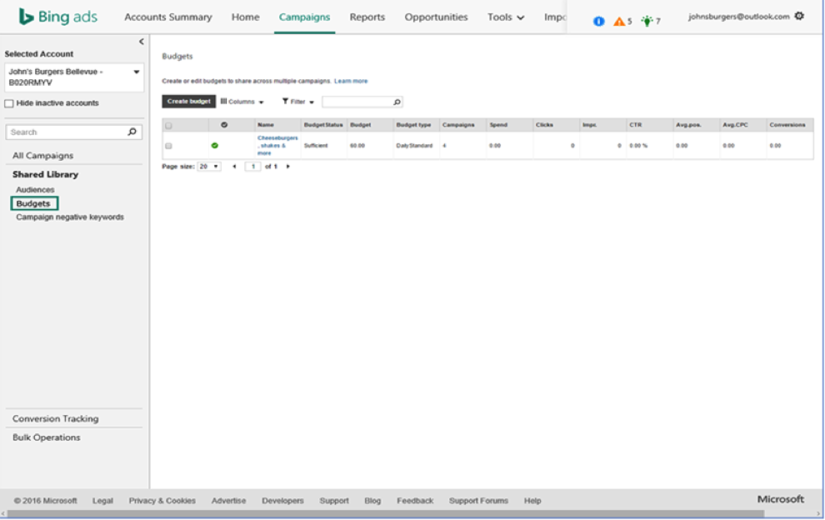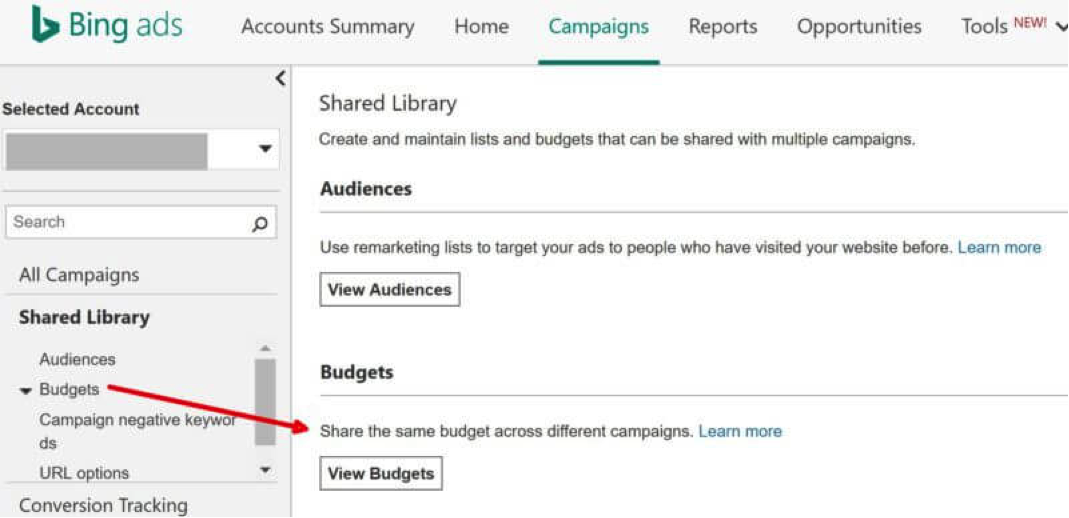Recently, Bing Ads announced the global release of Shared Budgets. They have been busy the past few weeks as the platform has rolled out a number of initiatives including Expanded Text Ads and a more comprehensive campaign set up workflow that provides performance estimates along the way. Shared Budgets are just the newest edition so let’s jump in with a few details.
How Do They Work?
Shared Budgets eliminate the need to spend any extra time setting up and recalculating individual campaign budgets.
Here is an example. Say you have a budget of $20 to be used uniformly between two campaigns every day. On a given day, Campaign A spends only $8 (of its $10 budget) because it received fewer impressions and clicks than usual. Using Shared Budgets, if Campaign B is performing well, Bing Ads will automatically allocate the unutilized $2 to Campaign B.
Benefits
- Have a single budget that can be used by all campaigns under or by a subgroup of campaigns under an account.
- Reduce time spent manually calculating how to allocate budget individually amongst a significant number of campaigns.
- Optimize your unutilized budget by having Bing Ads automatically allocate remaining budget to campaigns that are performing well.
Shared Budgets is available in all Bing Ads applications, including the Web UI, API, Editor (read-only) and mobile apps (read-only). This feature is available in the Shared Library as seen below. Shared Budgets is currently not supported with Import and Google Sync.

As in AdWords, Shared Budgets let you assign one budget to multiple campaigns. Let’s walk through another example of why you would want to do this. Say you have a fixed budget of $2,500 a week to spend on Bing Ads campaigns. After allocating budgets to individual campaigns, you may find at the end of the week that some campaigns tapped out their budgets and could have spent more, while other campaigns had budget to spare.
With Shared Budgets, all campaigns, or a subset of campaigns, can have a single budget that will get doled out automatically to the campaigns that need it. Shared budgets can lighten your workload and save time dedicated to budget pacing.

Do note that Shared Budgets is not supported by Import or Google Sync at this time. That means if you import updates from AdWords for an existing campaign in Bing Ads that uses a Shared Budget, the campaign budget won’t get updated. Bing Ads says it’s working on that integration for early 2017.
It’s a fairly simple process to set up, all told, but what does it mean in terms of practical account management? Ideally, it should help even out your spend levels by allocating your budgets across campaigns. By lumping them together, you could theoretically place lower-volume, high-efficiency campaigns together with one another to allocate a set budget towards whatever campaign happens to be spending that day.
That being said, there are some issues with the current implementation. There is skepticism of the motivations behind this system. While there is no doubt that this is an effective tool in evening out your daily spend levels when campaigns are properly grouped, it could be equally as effective at draining your wallet.
There doesn’t seem to be any method of preference or hierarchy when it comes to these shared budgets. Be wary of grouping dissimilar campaigns with one another – you otherwise run the risk of strangling your campaign budgets by inadvertently lumping high-spending campaigns together with your low-spending, yet highly efficient Branded campaigns. That may seem like a common-sense scenario to avoid, but it’s easy to envision such a scenario happening.



